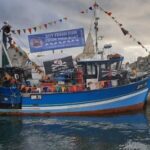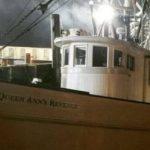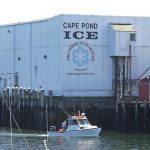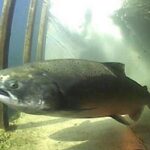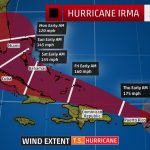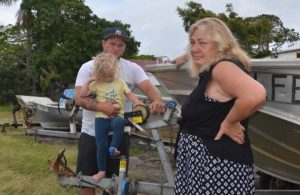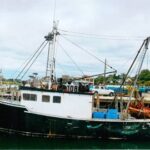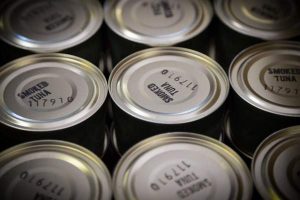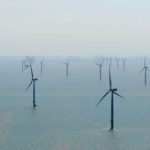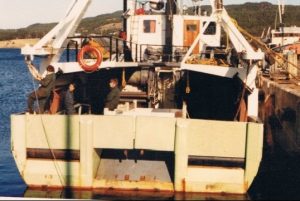Tag Archives: Analysis
Analysis of Northwest, other salmon hatcheries finds nearly all hurt wild salmon populations
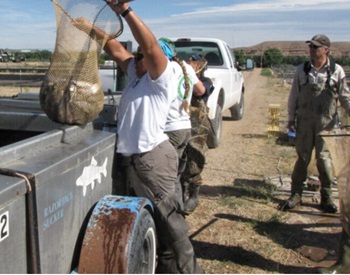 For much of the last century, fish hatcheries have been built in the Northwest, across the U.S. and around the world to boost fish populations where wild numbers have gone down. But an analysis of more than 200 studies on hatcheries programs meant to boost salmonid numbers across the globe – including salmon, trout and whitefish – shows that nearly all have had negative impacts on the wild populations of those fish. Most commonly, hatchery fish reduced the genetic diversity of wild fish, leading to poor health and reproductive outcomes. The findings weigh into a sensitive topic with a big price tag. In the Northwest, hatcheries are supposed to be a solution to declining wild salmonid numbers, caused in large part by hydroelectric dams, overfishing, irrigation and climate change. In the Columbia River Basin alone, officials have spent billions of dollars on nearly 200 hatcheries as well as habitat restoration projects during the past 50 years to improve wild numbers, but research shows those programs are having an opposite effect. more, >>click to read<< 12:34
For much of the last century, fish hatcheries have been built in the Northwest, across the U.S. and around the world to boost fish populations where wild numbers have gone down. But an analysis of more than 200 studies on hatcheries programs meant to boost salmonid numbers across the globe – including salmon, trout and whitefish – shows that nearly all have had negative impacts on the wild populations of those fish. Most commonly, hatchery fish reduced the genetic diversity of wild fish, leading to poor health and reproductive outcomes. The findings weigh into a sensitive topic with a big price tag. In the Northwest, hatcheries are supposed to be a solution to declining wild salmonid numbers, caused in large part by hydroelectric dams, overfishing, irrigation and climate change. In the Columbia River Basin alone, officials have spent billions of dollars on nearly 200 hatcheries as well as habitat restoration projects during the past 50 years to improve wild numbers, but research shows those programs are having an opposite effect. more, >>click to read<< 12:34
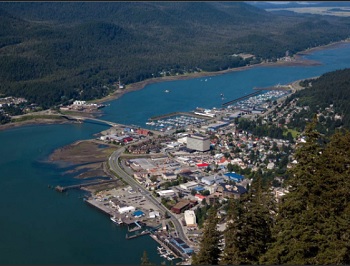
Is Juneau running out of diesel?
Juneau, Alaska is one of two capitals that is only accessible by water or air (the other is Honolulu, Hawaii. Like New England, almost every home in Juneau is heated by diesel oil. This small city of 30,000 souls has two rather large tank farms that store millions of gallons of fuel barged up from Seattle. Diesel is the lifeblood of Juneau. It has three harbors packed with fishing vessels that run on diesel. Two mines outside the city use diesel. The city’s backup power generators run on diesel. If this town ran out of diesel, it would be an economic catastrophe if not a humanitarian crisis. Some buildings only use diesel heat. If heat was shut down, the water supply would also have to be shut down (frozen lines). It would mean the closure of schools and, possibly, health facilities. So, the first step is to see if there is data on Alaska’s inventory. Video, >click to read< 10:56
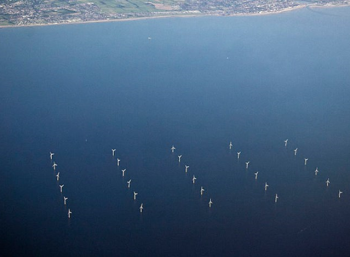
New study says smaller nearshore wind farms are more cost-effective than a single large offshore facility
Coastal communities will benefit more from near shore wind farms compared with offshore facilities located over 20 km from shore, a new Danish study has found. The study has produced several scenarios based on publicly available data.,, The study highlights that the shorter distance to the coast and lower water depth make it cheaper to establish nearshore wind farms. Other savings come from reduced cabling and electrical infrastructure costs when locating wind farms close to shore and closer to the onshore power grid. >click to read< 14:10
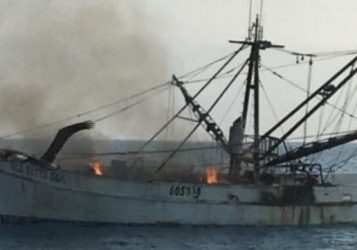
Mechanical Failure Blamed for Fire on Fishing Vessel
About 0545 on March 18, a rigman took the helm so that the captain could rest. About a half hour later, while the vessel was proceeding at “idle speed” (about 2.5 knots), the rigman heard something that sounded like a small “boom” or “heavy thud.” The captain returned to the wheelhouse when he heard the sound and told the rigmen to pull in the nets and gear. Lighting remained on and the vessel’s main engine continued to propel the boat. However, about a minute later, the vessel started shaking. >click to read< 08:15
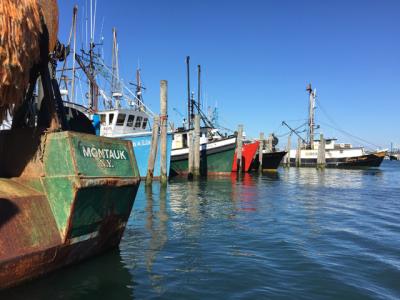
On the Value of Fisheries
The chairman of the Town of East Hampton’s fisheries advisory committee told the town trustees on Monday that the committee has raised $35,000 toward the $100,000 cost of an analysis of the socioeconomic importance of fisheries to the town, and asked that the trustees consider making a contribution of their own. Brad Loewen, a bayman and a former town councilman, told the trustees that the State Industrial Development Agencies has awarded a $25,000 grant toward the study, which would be conducted by Cornell Cooperative Extension of Suffolk County and cover the commercial and for-hire recreational fishing industries as well as aquaculture interests. click here to read the story 12:46
Saving Mehaden.org Analysis – Wild Ocean article “Menhaden Science Supports Conservation,”
Early in 2013, the Atlantic States Marine Fisheries Commission’s (ASMFC) Menhaden Technical Committee determined that there is too much uncertainty![]() in the most recent stock assessment results to determine whether or not menhaden are currently overfished. Despite this development, Ken Hinman, in his Wild Ocean article “Menhaden Science Supports Conservation,” asserts that continued
in the most recent stock assessment results to determine whether or not menhaden are currently overfished. Despite this development, Ken Hinman, in his Wild Ocean article “Menhaden Science Supports Conservation,” asserts that continued

































